[Part 08]
[Benton Bradberry’s 2012 book, “The Myth of German Villainy” is a superb, must-read, revisionist look at how the German people have been systematically, relentlessly and most importantly, unjustly vilified as the arch criminal of the 20th century. Bradberry sets out, coolly and calmly as befits a former US-Navy officer and pilot, to show why and how the German people have been falsely accused of massive crimes and that their chief accuser and tormentor, organized jewry is in fact the real party guilty of monstrous crimes against Germans and the rest of the world.
In Part 08, the influx of jews into Germany and their takeover of key positions in society is described. Following the advent of the Weimar Republic, which followed World War One and the Kaiser’s abdication, restrictions barring Jews from civil service jobs were removed resulting in jews dominating various key professions through their intense nepotism. Jews came to dominate the entertainment industry and through their promotion of debauchery undermined German culture. Combined with the hyper-inflation that caused masses of Germans to become impoverished, prostitution of all kinds flourished. Berlin gained an international reputation for decadence, debauchery and pornography, as depicted in the Broadway musical and later movie, Cabaret.
Adolf Hitler wrote about it in “Mein Kampf”:
“One needed only to look at the posters announcing the hideous productions of the cinema and theatre, and study the names of the authors who were highly lauded there in order to become permanently adamant on Jewish questions. Here was a pestilence, a moral pestilence from which the public was being infected. It was worse than the Black Plague of long ago.
— KATANA.]
NOTE: The author has very generously given me permission to reproduce the material here — KATANA.
The book can be bought at Amazon here: The Myth of German Villainy
The Myth of
German Villainy
by
Benton L. Bradberry
Contents
[Clicking on a link in the Contents here will take you to that Part, in a separate post]
[Part 01]
Chapter 1 – The Myth of Germany as an Evil Nation
Germany’s Positive Image Changes Overnight
[Part 02]
Chapter 2 – Aftermath of the War in Germany
The Versailles Treaty
Effect of the Treaty on the German Economy
Was the War Guilt Clause Fair?
Did Germany Really Start the War?
[Part 03]
Chapter 3 – The Jewish Factor in the War
Jews at the Paris Peace Conference
Jews in Britain
[Part 04]
Chapter 4 – The Russian Revolution of 1917
Bolsheviks Take Control
Jews and the Russian Revolution
Origin of East European Jews
Reason for the Russian Pogroms Against the Jews
Jews Leave Russia for America
Financing the 1917 Revolution
Jews in the Government of Bolshevik Russia
[Part 05]
Chapter 5 – The Red Terror
Creation of the Gulag
Bolsheviks Kill the Czar
Jews as a Hostile Elite
The Ukrainian Famine (Holodomor)
[Part 06]
Chapter 6 – The Bolshevik Revolution Spreads Throughout Europe
Jews in the Hungarian Revolution
Miklos Horthy Saves Hungary
Jews in the German Revolution
The Spartacist Uprising in Berlin
Jewish Bolsheviks Attempt to Take Italy
Jewish Bolsheviks Attempt to Take Spain — The Spanish Civil War
Czechoslovakia in Danger of Communist Takeover
The Comintern’s Aim? World Domination!
[Part 07]
Chapter 7 – The Nation of Israel
History of the Expulsion of Jews
[Part 08]
Chapter 8 – Jews in Weimar Germany
[Part 09]
Chapter 9 – Hitler & National Socialists Rise to Power
The 25 Points of the National Socialist Party
[Part 10]
Chapter 10 – National Socialism vs. Communism
National Socialism
Jews Plan Marxist Utopia
[Part 11]
Chapter 11 – Jews Declare War on Nazi Germany
Text of Untermeyer’s Speech in New York
The Jewish Persecution Myth
Effect of Boycott on the German Economy
Jewish Exaggerations are Contradicted by Many
[Part 12]
Chapter 12 – The Nazis and the Zionists Actually Work Together for Jewish Emigration out of Germany
The Nuremberg Laws – 1935
The Zionist Movement
[Part 13]
Chapter 13 – Life in Germany Under Hitler
Night of the Long Knives
1934 Annual Nazi Rally at Nuremberg
Hitler Revives the German Economy
Hitler Becomes the Most Popular Leader in the World
[Part 14]
Chapter 14 – Hitler Begins Reclamation of German Territory
Chapter 15 – The 1936 Olympics
[Part 15]
Chapter 16 – “Anschluss”. The Unification of Austria and Germany
Austrian Economy Revived
Austria’s Jews
[Part 16]
Chapter 17 – Germany Annexes the Sudetenland
[Part 17]
Chapter 18 – War with Poland
The Polish Problem
Hitler’s Proposal to Poland
Kristallnacht
German-Polish Talks Continue
Jews Influence both Roosevelt and Churchill
British and American Political Leaders Under Jewish Influence
Roosevelt’s Contribution to Hostilities
Lord Halifax Beats the War Drums
Germany Occupies Bohemia and Moravia
Roosevelt Pushes for War
Anti-war Movement Becomes Active
Poles Murder German Nationals Within the Corridor
[Part 18]
Chapter 19 – The Phony War
Russo-Finnish War
The Norway/Denmark Campaign
German Invasion of Denmark and Norway
Churchill Takes Chamberlain’s Place as Prime Minister
[Part 19]
Chapter 20 – Germany invades France Through the Low Countries
The Phony War Ends.
Churchill the War Lover
The Fall of France
Hitler Makes Peace Offer to Britain
[Part 20]
Chapter 21 – The Allied Goal? Destruction of Germany!
[Part 21]
Chapter 22 – Germany as Victim
Rape and Slaughter
Jewish Vengeance
The Jewish Brigade
[Part 22]
Chapter 23 – Winners and Losers
Chapter 8
Jews in Weimar Germany
Introduction
After the 1848 Revolution that swept Europe, most of the traditional restrictions placed on Jews were lifted. Germany was particularly generous to the Jews, giving them the same rights as all other citizens. With all restrictions lifted, Jews began to prosper in Germany at a rapid rate. In the rising prosperity that followed Germany’s consolidation into a single state in 1871, Jews prospered to a far higher degree than other Germans. Their remarkable ability to work together for the achievement of all Jews at the expense of the Gentile host population, gave them a strong competitive edge. Kaiser Wilhelm kept them out of government for the most part, so they did not acquire significant political power under the Kaiser. That was to change with the advent of the Weimar Republic which followed World War One and the Kaiser’s abdication, when restrictions barring Jews from civil service jobs were removed.
East European Jews also began to flood into Germany at this time as the result of the turmoil in that region caused by the war, the Russian Revolution that followed, and the Russian Civil War following that. Large numbers of people wanted to move out of those dangerous areas and cross over into Germany through East Prussia which bordered Russia.
The head of German immigration and naturalization in the early period of the Weimar Republic happened to be Jewish (Herr Badt), who gave preference to Jews wanting to immigrate into Germany. At that same time, other European countries were still maintaining strict limits on Jewish immigration. These newcomers poring over the East Prussian border spread out and joined other Jewish communities which tended to locate in Germany’s larger cities. With the Kaiser now gone, and all bars against them lifted, Jews flooded into all government offices of the Weimar Republic. They also systematically invaded the professions and German institutions. Jews stick together as a race and always pull and shove each other up the ranks of institutions and organizations, and pull strings to ensure that members of their race are given first priority at student openings in major universities, and so forth. While Western Christians generally apply the test of “ability” in hiring and promotions, with considerations for ethnicity or religion being secondary, or of no consideration whatever, Jews choose their associates and subordinates primarily based on their being “Jewish,” and if they happen to have “ability” at the same time, well, that’s OK too. In Jewish controlled organizations in the Weimar Republic, the Gentile did not have a chance in competition for jobs or promotions. Jews always chose other Jews.
This intense in-group cooperation and mutual assistance among Jews facilitated their rapid infiltration of every institution in Germany. The pattern has always been the same; once a Jew obtains a position, he brings other Jews in, and in the process, gradually pushes the non-Jews out. It was not long until Jews dominated Weimar Germany. (That same process is occurring in the United States today.)
Sir Arthur Bryant, a respected British historian, explained in his book [1], Unfinished Victory, 1940, that although Jews comprised less than 1% of the German population, they controlled 57% of the metal trade, 22% of grain, and 39% of the textile trade. More than 50% of the Berlin Chamber of Commerce was Jewish, as were an amazing 1,200 of the 1,474 members of the German Stock Exchange. German banking and finance was under the total control of Jews. It was estimated that during the Weimar Republic, the average income of Jews was three times that of non-Jews. In 1928, it was revealed that just fifteen Jews had occupied 718 board positions between them. Of leading positions in industry there were 2 Jews for every non-Jew.
[ Add. Image — Arthur Bryant and the cover of his (Jan, 1940) book, “Unfinished Victory”.]
Below is a comparison of the percentage of top positions in Commerce held by Jews in various German cities during the Weimar period with the low percentage of Jews in “blue collar” jobs:
Percentage of Jews in Top Positions:
in Commerce — Blue Collar Jobs
Berlin . . . . . . 49.4% — 2.4%
Frankfurt . . . . . . 48.9% — 1.9%
Cologne . . . . . . 49.6% — 2.9%
Breslau . . . . . . 57.1% — 1.8%
The political influence of the Jews in the Weimar Republic was enormously out of proportion to their numbers in the population. Of the Social Democratic Party’s 39 Representatives, 38 were Jews. The membership of The Workers Educational Institutes were 81% Jewish.
Of the 29 legitimate theaters in Berlin, 23 had Jewish directors. In 1931, of 144 film scripts made into movies, 119 were written by Jews, and 77 were produced by Jews. Not less than 75% of all plays were written by Jews.
Joseph Eberle wrote in the journal “Schonere Zukunft,” on February 3, 1929:
“The share of Jews in the film industry is so decisive that a very slight percentage is left available for non-Jewish undertakings.”
It gets worse! Of university teachers:
in Berlin;
in the field of medicine, 45% were Jewish;
in Gottingen;
34% of mathematics professors were Jewish,
34% of medical professors were Jewish,
40% in the arts were Jewish, and
47% in law were Jews;
in Breslau;
in medicine, 45% Jewish;
in law, 48% Jewish;
in arts, 25% Jewish.
In Konigsberg;
in arts, 7% Jewish;
in law, 14% Jewish;
in medicine, 25% Jewish.
In 1928, the percentages of lawyers who were Jewish:
in Dortmouth 29%
Hamburg 26%
Stuttgart 26%
Dusseldorf 33%,
Karlsruhe 36%
Beuthen 60%
Frankfurt 64%
Stettin 36%
Berlin 66%.
Percentage of doctors in private practice who were Jewish (1928):
Wiesbaden 20%
Karlsruhe 26%
Cologne 27%
Mainz 30%
Gotha 31%
Beuthen 36%
Berlin 52%.
Percentage of doctors in Berlin hospitals who were Jewish: Moabit Hospital 56%, Friedrichshain Hospital 63%, and Neukolln Hospital 52%.
[Add. Image (click to enlarge) — A chart in the 1933 book, “Jewish Domination of Weimar Germany” by Echart Verlag, shows the intellectual vocations dominated by jews in Berlin.]
In his book “Mein Leben als deutscher Jude” (My Life as a German Jew), 1980, Dr. Nahum Goldmann describes the “phenomenal rise of German Jewry” as follows:
“German Jewry, which found its temporary end during the Nazi period, was one of the most interesting and for modern Jewish history most influential centers of European Jewry. During the era of emancipation, i.e. in the second half of the nineteenth and in the early twentieth century, it had experienced a meteoric rise…. It had fully participated in the rapid industrial rise of Imperial Germany, made a substantial contribution to it and acquired a renowned position in German economic life. Seen from the economic point of view, no Jewish minority in any other country, not even that in America could possibly compete with the German Jews. They were involved in large scale banking, a situation unparalleled elsewhere, and, by way of high finance, they had also penetrated German industry. A considerable portion of the wholesale trade was Jewish.
They controlled even such branches of industry which is in general not in Jewish hands. Examples are shipping or the electrical industry, and names such as Ballin and Rathenau do confirm this statement. I hardly know of any other branch of emancipated Jewry in Europe or the American continent that was as deeply rooted in the general economy as was German Jewry. American Jews of today are absolutely as well as relatively richer than the German Jews were at the time, it is true, but even in America with its unlimited possibilities the Jews have not succeeded in penetrating into the central spheres of industry (steel, iron, heavy industry, high finance, shipping), as was the case in Germany.
Their position in the intellectual life of the country was equally unique. In literature, they were represented by illustrious names. The theatre was largely in their hands. The daily press, above all its internationally influential sector, was essentially owned by Jews or controlled by them. As paradoxical as this may sound today, after the Hitler era, I have no hesitation to say that hardly any section of the Jewish people has made such extensive use of the emancipation offered to them in the nineteenth century as the German Jews! In short, the history of the Jews in Germany from 1870 to 1933 is probably the most glorious rise that has ever been achieved by any branch of the Jewish people”. Dr. Nahum Goldmann.
Further, according to Goldmann:
“The majority of the German Jews were never fully assimilated and were much more Jewish than the Jews in other West European countries”.
What Goldmann revealed, perhaps inadvertently, was that, precisely as the Nazis were saying, the Jews had taken control of most of Germany’s institutions. Yet, they numbered less than 1% of the German population, and as Goldmann also points out, they were never fully assimilated. This tiny elite were seen by the German people as aliens and not even German, yet, they literally ran the country. From this perspective, the rise of Hitler and the Nazi movement and its strong anti-Jewish sentiments become much easier to understand. Jewish propagandists today deny that the Jews were so powerful in Germany at that time.
[Add. Image — Nahum Goldmann on the June 24, 1954 cover of the Israel weekly newsmagzine, “Frontpage” and his 1980 book, “Mein Leben als deutscher Jude” (My Life as a German Jew).]
Dr. Nahum Goldmann was an ardent Zionist who was denounced by the Nazis as a secret Communist agent shortly after the Beer Hall Putsch. He was stripped of his German citizenship in 1935 and later emigrated to the United States. He helped Rabbi Stephen Wise establish the World Jewish Congress and became one of the more active purveyors of sensational, but false, tales of Nazi atrocities against the Jews.
Jews Undermine German Culture
The Jews in Weimar Germany used their dominance in theater, film and newspapers to ridicule traditional German culture and German ideals. Christianity was also targeted for ridicule. (That process is now occurring in the United States.) This was a period when Berlin gained an international reputation for decadence, debauchery and pornography, as depicted in the Broadway musical and later movie, Cabaret, for example. Germany during the Weimar Republic underwent a virtually unparalleled period of social and cultural upheaval, to a great extent, a result of the disillusionment over losing the war and the unjust peace treaty which followed. Germans began to question the meaning of life. In Weimar’s early years, Germany was a society which had been cut loose from its traditional cultural moorings and set adrift. The old norms and the old rules of social behavior didn’t seem to apply anymore. The war also produced a similar result in England and American, though to a much lesser extent, causing a sort of social malaise, as manifested in the so-called “lost generation.” The Jews used this climate of cultural uncertainty and loss of confidence among the German people to undermine and destroy what remained of the traditional German culture.
The movie Cabaret typified the decadent life of Weimar Berlin
<
div>
Homosexuality [left, Sebastian Droste] and lesbianism [right, Anita Berber] were openly flaunted during the Weimar years.
To make matters worse, Germany experienced a “runaway” inflation in 1923 which nearly destroyed the German economy. During the inflation, a loaf bread cost four billion Marks. The middle class was wiped out, their life savings gone. People starved. Murder and violence were rampant, including sexual murder, or lustmord, which became a sensation in Weimar’s tabloids. Women from once respectable families could be seen prostituting themselves, their daughters, and even their sons on the streets of Berlin in order to survive. In the eyes of the world, Weimar Berlin became the epitome of decadence. Women dressed like men and flaunted their lesbian lovers. Nudity was everywhere.
The very word “Weimar” conjured up images of cabarets, cross-dressers, open homosexuality and prostitution. Berlin, with other German cities not far behind, became a Mecca of scandal, moral degradation and nudity.
[Add. image — Anita Berber and Sebastian Droste, ‘Morphine‘ – 1920 – Atelier Eberth, Berliner Illusrierte Zeitung.]
Jewish control of the news, information, and entertainment industries was the perceived cause of this breakdown in public morals. It was well established that Jews controlled prostitution and pornography, as well as the white slave trade, during the Weimar years. To use the language of today, the Nazis were “socially conservative,” even puritanical in outlook, and saw themselves as the defenders of traditional, conservative, Christian, volkish German values. They denounced the licentiousness which had taken root in the country, and attributed it to Jewish influences. Weimar debauchery was the principle cause of the Nazi crackdown that followed.
Adolf Hitler wrote about it in “Mein Kampf”:
“One needed only to look at the posters announcing the hideous productions of the cinema and theatre, and study the names of the authors who were highly lauded there in order to become permanently adamant on Jewish questions. Here was a pestilence, a moral pestilence from which the public was being infected. It was worse than the Black Plague of long ago. And in what mighty doses this poison was manufactured and distributed. Naturally, the lower the moral and intellectual level of such an author of artistic products the more inexhaustible his fecundity. Sometimes it went so far that one of these fellows, acting like a sewage pump, would shoot his filth directly in the face of other members of the human race….
It was a terrible thought, and yet it could not be avoided, that the greater number of Jews seemed specially designed by Nature to play this shameful part. The fact that nine tenths of all the smutty literature, artistic tripe and theatrical banalities, had to be charged to the account of people who formed scarcely one percent of the nation ― that fact could not be gainsaid. It was there. It had to be admitted.”
The Jewish influence in all of this civil discord in Germany was plain for anyone to see. A great majority of the Jews were Communists, which posed a mortal threat to the average German. The German people were fully aware of what had been happening in Russia at the hands of the Bolshevik Jews. Additionally, due to the rampant inflation, for it literally did take a wheel-barrow full of money to buy a loaf of bread, the only people who were able to buy either property or goods were those who could obtain money from outside the country, which, in most cases meant the Jews.
In 1914, a German mark was valued at around twenty-five cents of American money. In 1923, four million marks equaled twenty-five cents. During this period many German families were forced to sell everything they had in order to survive. Upper-class Jews with foreign financial connections were able to buy up much of Germany’s material wealth for incredibly low prices. So-called Jewish “carpetbaggers” [2] were everywhere, consuming the nation like parasites consume a cadaver. All classes of Jews in Germany advanced themselves during the Weimar years while the economic condition of ethnic Germans steeply declined.
Germany had narrowly avoided a Bolshevik takeover of the country similar to that which had occurred in Russia; saved from this fate, as it were, by the Freikorps, or private militias comprised of soldiers and officers who had recently returned from the front. Nevertheless, from the beginning of the Weimar Republic, a tense bifurcation of political power existed between the Communists on the one hand, and right wing political parties on the other, including the National Socialists. As Germany staggered under the weight of economic chaos, that is, inflation, followed by depression, the Jewish Communists made a relentless, concerted effort to take political control. Under the banner of Communism and through control of finance (two heads of the same dragon), the Jews threatened to take complete control of the country.
[Add. Image — A Belgian recruiting poster for the Waffen SS circulated in Belgium. The Waffen SS “swords” slay the Jewish Bolshevik dragon surrounded by human remains.]
An editorial in “The Daily Mail of London” of July 10, 1933 stated:
“The German nation… was rapidly falling under the control of its alien elements. In the days of the pre-Hitler regime there were twenty times as many Jewish government officials in Germany as had existed before the war (WWI). Israelites of international attachments were insinuating themselves into key positions in the German administrative machine.”
Adolf Hitler said:
“If the question is still asked why National Socialism combats the Jewish element in Germany so fanatically, the answer can only be, because National Socialism wishes to establish a real community of the people. Since we are National Socialists, we cannot permit an alien race to impose itself upon our working people as their leaders.”
_______________________
Notes
(Note: Not part of the book)
[1] The reception of Bryant’s Unfinished Victory: insights into British public opinion in early 1940
By Richard Griffiths. Published online: 04 Jun 2010
Abstract
Griffiths describes how, after its publication in January 1940, Unfinished Victory, a clearly pro-Nazi and antisemitic book by the historian Arthur Bryant, could arouse little adverse comment from the majority of its reviewers, and positive enthusiasm from a good number of them. This examination will cause us to revise some of the usual presumptions about public opinion in relation to Nazi Germany in the period of the ‘phoney war’, and to reinforce others about the British public’s basic unconcern in relation to manifestations of antisemitism. Moreover, the belief, widely held until now, that the British public reacted violently against Bryant’s book, and that he himself immediately realized his mistake, is shown to be untrue. Bryant’s reactions to some of the few critical reviews of his book, and his correspondence with his publisher, show him to have been confident of the rightness of his attitude, as does his decision, some time after the book’s appearance, to send complimentary copies to the royal family and the prime minister.
It was only after the fall of Chamberlain and the advent of Churchill, and the arrests of ‘fellow travellers’ in May 1940, that Bryant appears to have realized his mistake; he then bought up copies of the book, and started to write those patriotic works for which he is far more famous. An interesting aspect of the subject is Bryant’s relationship with his publisher Harold Macmillan. Surprisingly, given his anti-appeasement attitudes, Macmillan positively encouraged Bryant to produce the book, and seems to have been little affected at that time by its attitudes to Nazi Germany or by its antisemitic flavour.
Given the reactions of some of his anti-appeasement colleagues, however, he soon swung against it after its publication. His correspondence thereafter with Bryant, as he tried under various pretexts to remove him from the Macmillan list, is very revealing, as are Bryant’s knowing reactions.
Source: http://www.tandfonline.com/doi/abs/10.1080/0031322032000185569
[2] Definition and origin of “carpetbagger”:
In United States history, a “carpetbagger” was a Northerner who moved to the South after the American Civil War, during the Reconstruction era (1863–1877). … “Carpetbagger” was a pejorative term referring to the carpet bags (a form of cheap luggage made from carpet fabric ) which many of these newcomers carried.
An outsider who pretends to be an insider is a “carpetbagger”; he’s a person who tries to take advantage of a group by joining it only for his own personal benefit.
[END of Part 08]
______________________________
PDF Download
PDF Notes
* Total words = 4,741
* Total pages = 30
*Total images = 10
*Note: Images not in original book are indicated as “Add. image” (Additional image).
*Text in [square brackets] is not part of the original book.
*Special thanks to reader “mblaine” for providing the text for this book.
Click to download a PDF of this post (2.0 MB).
The Myth of Germany Villainy – Part 08 – Jews in Weimar Germany (Ver 2)
Click on a link to go to another part:
[Click images to enlarge]
Part 01 — Cover text; About the Author; Preface; Chapter 1: The Myth of Germany as an Evil Nation
Part 02 — Chapter 2: Aftermath of the War in Germany
Part 03 — Chapter 3: The Jewish Factor in the War
Part 04 — Chapter 4: The Russian Revolution of 1917
Part 05 — Chapter 5: The Red Terror
Part 06 — Chapter 6: The Bolshevik Revolution Spreads Throughout Europe
Part 07 — Chapter 7: The Nation of Israel
Part 08 — Chapter 8: Jews in Weimar Germany
Part 09 — Chapter 9: Hitler and National Socialists Rise to Power
Part 10 — Chapter 10: National Socialism vs Communism
Part 11 — Chapter 11: Jews Declare War on Nazi Germany
Part 12 — Chapter 12: The Nazis and the Zionists Actually Work Together for Jewish Emigration out of Germany
Part 13 — Chapter 13: Life in Germany Under Hitler
Part 14 — Chapter 14 & 15: Hitler Begins Reclamation of German Territory; The 1936 Olympics
Part 15 — Chapter 16: “Anschluss” The Unification of Austria and Germany
Part 16 – Chapter 17: Germany Annexes the Sudetenland
Part 17 – Chapter 18: War with Poland
Part 18 – Chapter 19: The Phony War
Part 19 – Chapter 20: Germany invades France – The Phony War Ends
Part 20 – Chapter 21: The Allied Goal? Destruction of Germany!
Part 21 – Chapter 22: Germany as Victim
Part 22 (last) – Chapter 23: Winners and Losers
See Also
The Myth of German Villainy: Author Ben Bradberry Interview — TRANSCRIPT
_____________________
Version History
Version 6: Mar 13, 2021 – Added new Go2 Cover images (3).
Version 5: Jul 12, 2020 — Added Table of Contents with links.
Version 4: Mar 11, 2020 — Added image of interview cover.
Version 3: Jan 6, 2020 — Re-uploaded images and PDF for katana17.com/wp/ version.
Version 2: Nov 11, 2016 — Added 6 more images. Added a Footnotes section. Updated PDF (Ver 2) for download.
Version 1: Oct 23, 2016 — Created post. Added PDF for download.


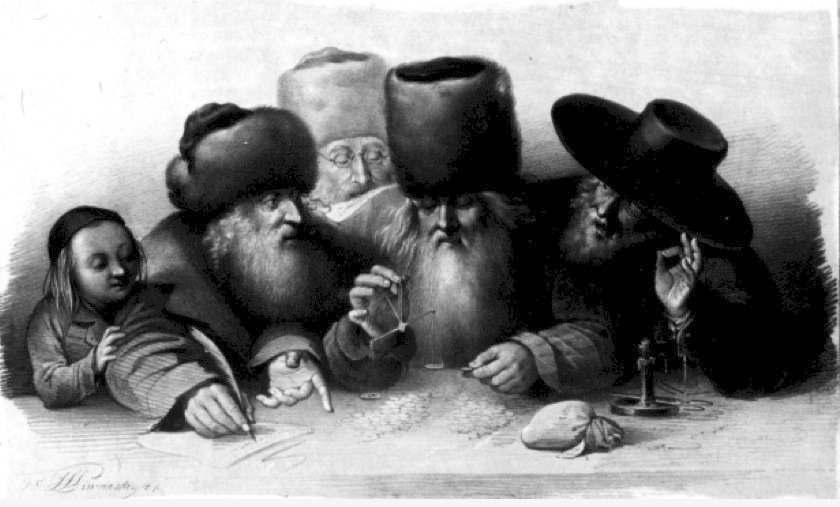
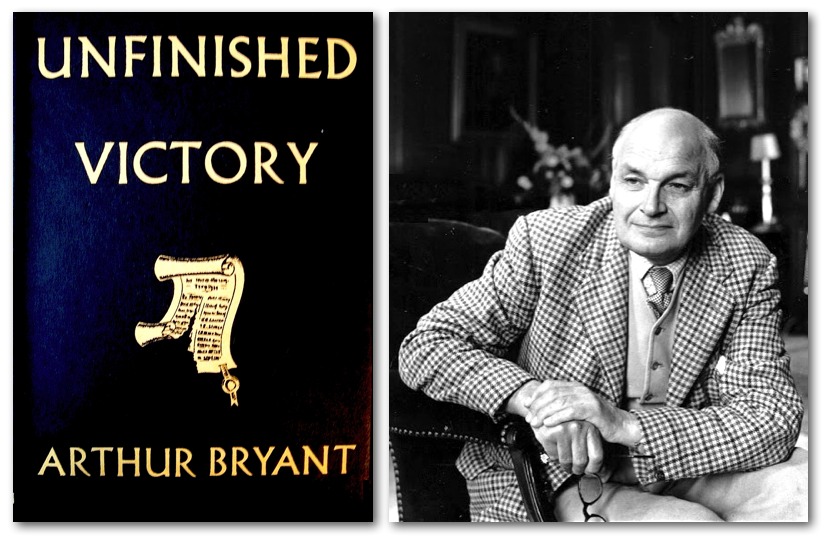

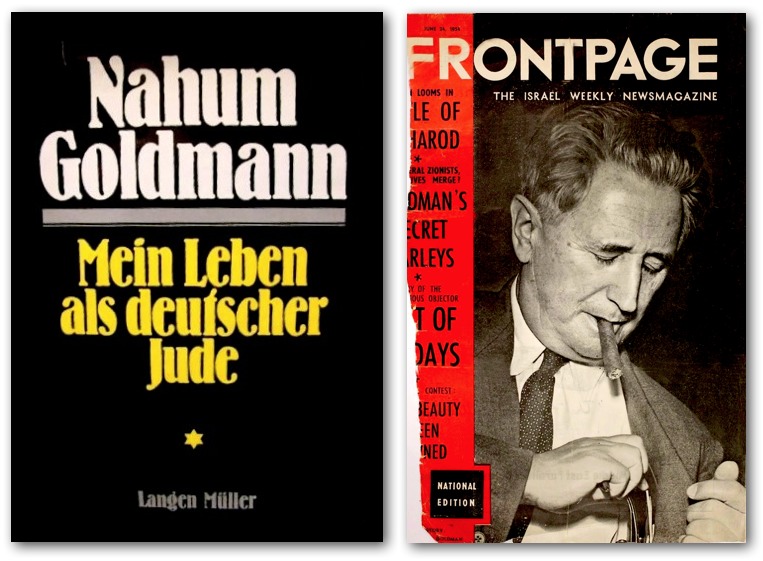


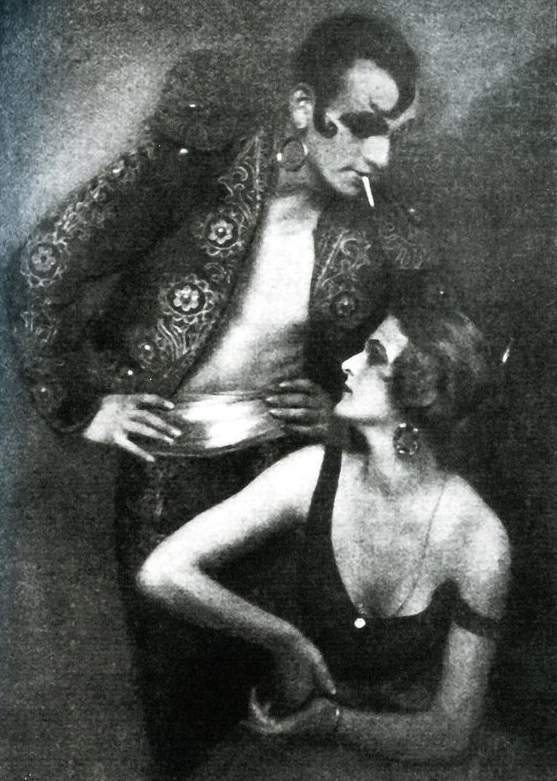

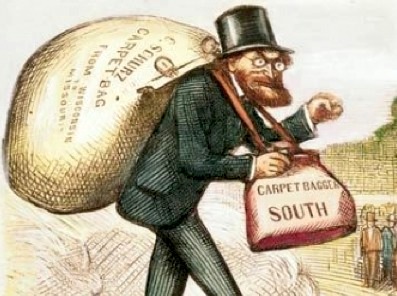





The movie Cabaret typified the decadent life of Weimar Berlin
———
What about the decadent life of Hitler Youth? Teenage members of Hitler Youth were encouraged to have sex with each other. Many girls became pregnant.
Pingback: Book - The Myth of German Villainy - Part 02 - Aftermath of the War in Germany - katana17katana17
Pingback: Book - The Myth of German Villainy - Part 06 - The Bolshevik Revolution Spreads throughout Europe - katana17katana17
Pingback: Book - The Myth of German Villainy - Part 11 - Jews Declare War on Nazi Germany - katana17katana17
Pingback: Book - The Myth of German Villainy by Benton Bradberry - Part 01 - katana17katana17
Pingback: Book - The Myth of German Villainy - Part 04 - The Russian Revolution of 1917 - katana17katana17
Pingback: Book - The Myth of German Villainy - Part 21 - Germany as Victim - katana17katana17
Pingback: Book - The Myth of German Villainy - Part 22 (last) - Winners and Losers - katana17katana17
Pingback: Book - The Myth of German Villainy - Part 18 - The Phony War - katana17katana17
Pingback: Book - The Myth of German Villainy - Part 03 - The Jewish Factor in the War - katana17katana17
Pingback: Book - The Myth of German Villainy - Part 05 - The Red Terror - katana17katana17
Pingback: Book - The Myth of German Villainy - Part 07 - The Nation of Israel - katana17katana17
Pingback: Book - The Myth of German Villainy - Part 09 - Hitler and National Socialists Rise to Power - katana17katana17
Pingback: Book – The Myth of German Villainy – Part 15 – “Anschluss” The Unification of Austria and Germany | katana17
Pingback: Book – The Myth of German Villainy – Part 16 – Germany Annexes the Sudetenland | katana17